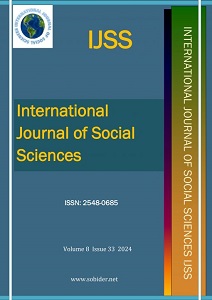Protection of the Environment during War in Islamic Law Literature
Protection of the Environment during War in Islamic Law Literature
Author(s): Veysel NargülSubject(s): Sociology, Islam studies, Human Ecology, Political Ecology, Environmental interactions, Sharia Law
Published by: SD Yayınevi
Keywords: Islamic Law; Law; War; Environment; Environmental Protection;
Summary/Abstract: Human-centered environmental issues are a phenomena as old as human history. In the earlier periods, it was not regarded as a common problem because environmental damage was not at a level that would negatively affect the ecosystem and living beings. In the modern period, especially after the industrial revolution, some solutions have been developed at national and international levels after taking into consideration the damage of environmental problems to living beings and the ecosystem on a global scale. Although some countries that were experiencing these problems on a national scale made some progress individually, the 1972 Stockholm Declaration was the first time environmental issues were placed at the forefront of international concerns, and marked the start of a dialogue at the international level to protect the environment. The Qur'an does not approve any illegitimate war against a state or a community. There is no recorded war by Prophet Muhammad against a community without a legitimate reason. Islamic law proposes maximum legality and morality during a legitimate war. It is also seen that this Islamic perspective is grasped in terms of protecting the environment. When analyzing the opinion of jurists of Islamic Law, it is seen that unnecessary destruction of the environmental values such as houses, trees and green spaces is prohibited, as a basic principle. Therefore, Islamic jurists' perspectives on provisions concerning the destruction of environmental elements like trees, buildings, and green spaces are constrained by military necessity only. Consequently, environmental damage during warfare is deemed permissible solely for defensive purposes. However, this legitimacy is contingent upon avoiding unnecessary demolition.
Journal: Uluslararası Sosyal Bilimler Dergisi
- Issue Year: 8/2024
- Issue No: 33
- Page Range: 511-531
- Page Count: 21
- Language: English

